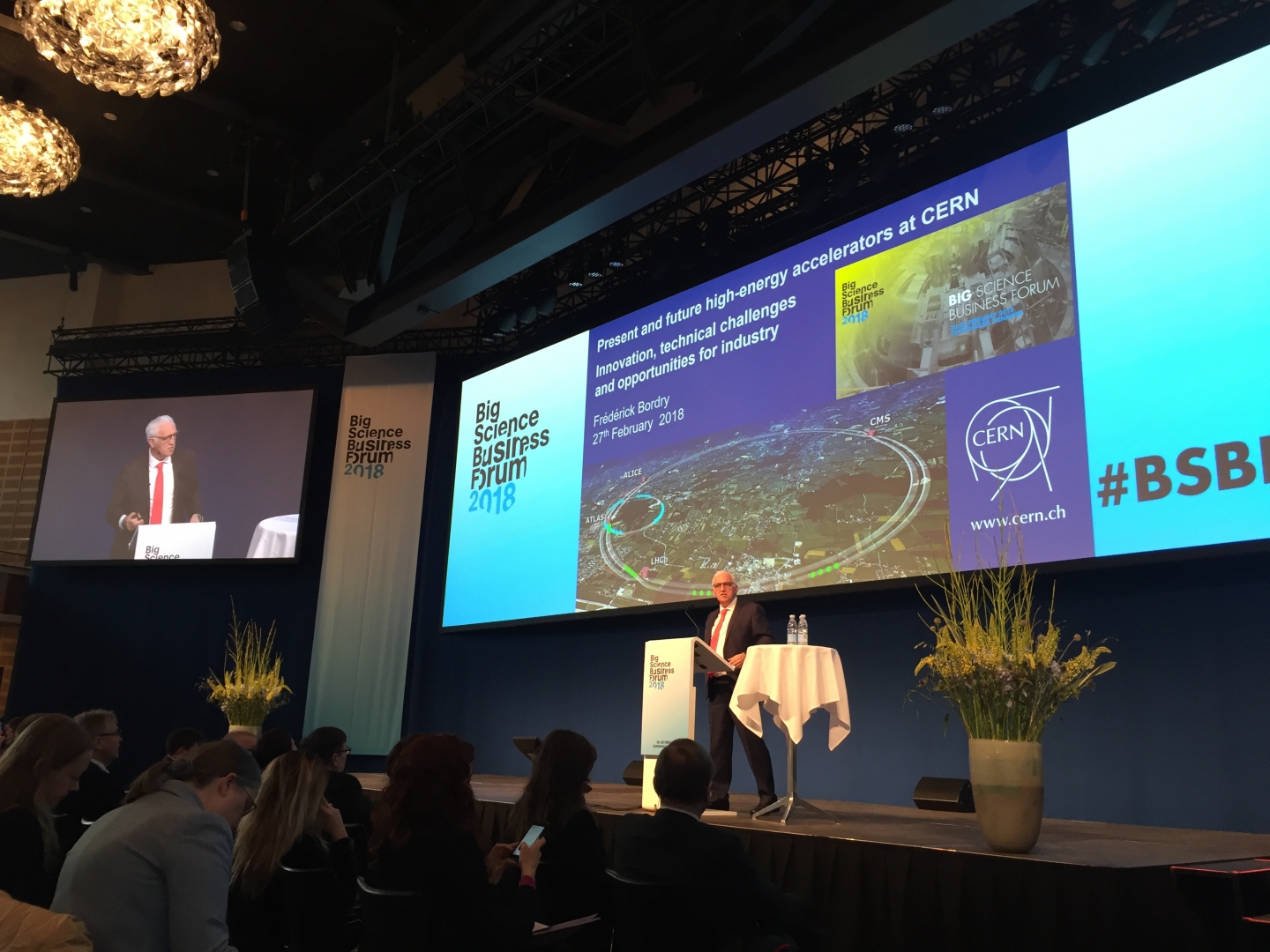Big science equals big business, whether it is manufacturing giant superconducting magnets for particle colliders or perfecting mirror coatings for space telescopes. Last week, the Big Science Business Forum (BSBF), in Copenhagen, Denmark, saw more than 1000 delegates from more than 500 companies and organisations spanning 30 countries discuss opportunities in the current big-science landscape.
Nine of the world’s largest research facilities – CERN, EMBL, ESA, ESO, ESRF, ESS, European XFEL, F4E and ILL – offered insights into procurement opportunities and orders worth billions of euros for European companies in the coming years. These range from advisory engineering work and architectural tasks, to advanced technical equipment, construction projects and radiation-resistant materials. A further nine organisations also joined the conference programme: ALBA, DESY, ELI-NP, ENEA, FAIR, MAX IV, SCK•CEN – MYRRHA, PSI and SKA, gathering 18 of the world’s most advanced big-science organisations under one roof.
CERN participants presented 19 of the 120 talks, covering not only the business and knowledge transfer opportunities in general, but also the specifics of the CERN environment. Many focussed on the upcoming contracts for the Large Hadron Collider (LHC) upgrade: the High Luminosity LHC project. As well as material, power and electrical engineering and the manufacturing of components, talks looked at the needs for vacuum technology, radio-frequency systems, beam instrumentation, industrial controls, computing and safety.
The big-science market is currently fragmented by various different quality standards and procurement procedures of the different laboratories. BSBF provided a space to discuss the entry challenges for businesses and suppliers – including small- and medium-sized enterprises – that can be valuable business partners for big science projects.
"The vision behind BSBF is to provide an important stepping stone towards establishing a stronger, more transparent and efficient big-science market in Europe and we hope that this will be the first of a series of BSBF in different European cities," said Agnete Gersing of the Danish ministry for higher education and science during the opening address.
The event, which ran from 26 to 28 February, featured around 800 one-to-one business meetings. Parallel sessions covered 16 topics concerning big science as a business area, addressing topics such as the investment potential and best practices of Europe’s big-science market.
“Much of the most advanced research takes place at big-science facilities, and their need for high-tech solutions provides great innovation and growth opportunities for private companies,” said Danish minister for higher education and science, Søren Pind.
Find out more about doing business with CERN and about the industrial opportunities of the new High Luminosity LHC project via CERN’s procurement website.

